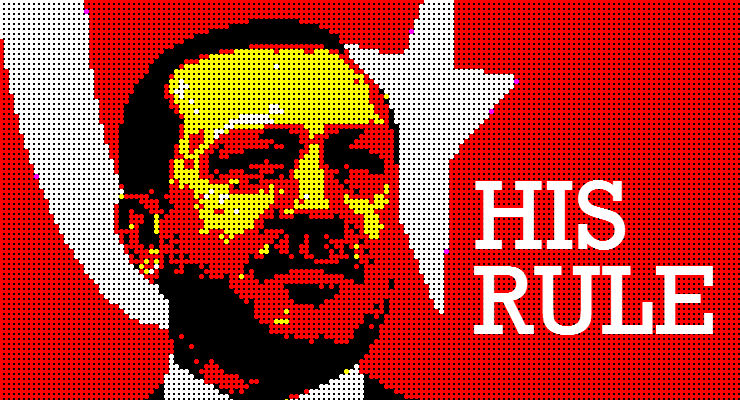by Hoai Tram Nguyen
“What time is it now?” was the most frequently asked question in Turkey on the 25th of October 2015. Turkey’s President, Recep Tayyip Erdogan decided to delay the time change to winter time due to the upcoming national elections on Sunday, the 1st of November. Appointments were missed, flights were delayed, and frustrations towards “Erdogan’s time” grew.
Next to the special time initiation, particular news stations (the ones who were critical towards Erdogan) were hijacked from their broadcast, demonstrations were cracked down by police, and international attention on Turkey was high.
Why was Turkey holding the second parliamentary election within five months?
What is the reason behind internal tensions in the country?
And where did the high international interest in the elections come from?
Previous Elections
Turkey has been ruled by the Justice and Development Party (AKP) since 2002. This changed however as the party lost its long-held majority for the first time in the elections earlier this year in June. Even more significant, their opposition, called the Peoples’ Democratic Party (HDP) gained 80 seats and surpassed the threshold of 10% (with 12%) to enter Parliament for the first time in history.
This was significant because the HDP was the first pro-Kurdish party that succeeded to pass the threshold. Coalition talks failed – which was not a surprise taking into account Erdogan’s ambitious dream of a presidential instead of a parliamentary system.
Tensions
The time in between the elections of June and November could be described as highly tense and divided. The outcome of the previous elections resulted in a rise of tensions between the Kurds and the nationalistic Turks. Still today, the Turkish-Kurdish peace process is far away from being a success.
At the end of July, President Erdogan emphasised in a statement that the peace process was impossible to continue “with those who threaten our national unity and brotherhood”. The situation became even more complicated when Turkey decided to bomb ISIS alongside with NATO, while simultaneously bombing camps of the Kurdistan Workers’ Party (PKK) in Iraq.
This led to growing violence on the east side of the country, which saw not only suffering among civilians rising, but also a return to the vicious circle of the Oslo Process negotiations which failed in 2011. Even though Turkey has shown great efforts in the evolution of granting Kurds equal citizenship rights, assimilation and acculturation are still a common phenomenon according to critics.
Recognition of Kurdish identity or not, visible internal violence was still growing in many parts of Turkey. Consequently, hundreds of people gathered for a peace-rally in Ankara to protest against the violence on the 10th of October. Tragically, these peaceful demonstrators became victims of a twin bomb attack, which killed more than 130 people.
The aftermath of these bombings was even grimmer – social media was shut down by the government for nearly a week. Fortunately, my Facebook was still half-functioning, and my Turkish friend was able to send me a message to warn me of upcoming demonstrations: “Please try to avoid Taksim/Beyoğlu for 2 days, the police will not hesitate to use water cannons, rubber bullets, and teargas”.
Demonstrators went on the streets and protests broke out like my friend predicted, as they were blaming the government for the attacks in Ankara. Their suspicion could be linked with the fact that the HDP organised the peace rally. In the period between the attack and the elections, many demonstrations have broken out, showing divisions in the country with brutal police force.
International Interest in Turkey
The world we are living in today shows how tightly interconnected we are. The war in Syria gave Turkey a significant role in global politics. The high flow of refugees that have reached the EU countries through Turkey has resulted in many talks between the EU and Turkey.
On the one hand, the EU needs a functioning Turkish government to cooperate with in the refugee crisis. On the other hand, the EU cannot ignore its values such as democracy, human rights, freedom of media etc. The latter is partially a major problem in the accession process of Turkey to the EU.
MEP Marietje Schaake put emphasis on this matter during a debate before the elections:
“The media is under serious and systematic pressure in Turkey. This is not just about insults, in fact it is about personal attacks on journalists, intimidation, excessive, politically-motivated tax fines on media companies, raid of media companies, personal violence used against a columnist recently. This is very very worrying and does not enable an environment and a debate for free elections”.
However, if one looks more critically at the situation, one could conclude that the EU was more focused on a stable government, rather than another hung parliament as the refugee crisis continues to affect the EU on daily basis. Priorities? Right…
It is too early to speculate on the future of the country after these elections. All we know is that Erdogan won back his majority votes (50% of the votes), enabling Turkey to be ruled by a single-party once again. However, the outcome must have disappointed Erdogan to a lower degree, as the AKP party only gained 316 seats, but would need 367 seats to change the constitution. Moreover, the HDP succeeded once again to pass the threshold (though lower this time, with 10%). How the country will progress now is still a question that no one can yet answer. Only time will tell, what I can say is: let’s hope for the best from all sides (internal and external).
Image by Democracy Chronicles, taken from flickr




